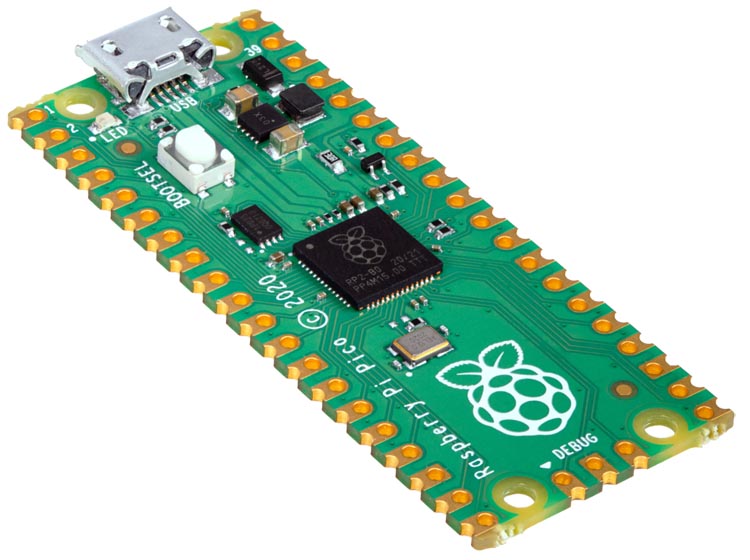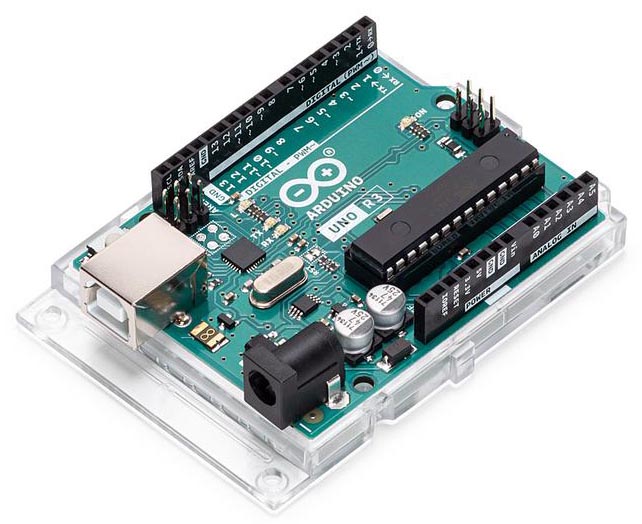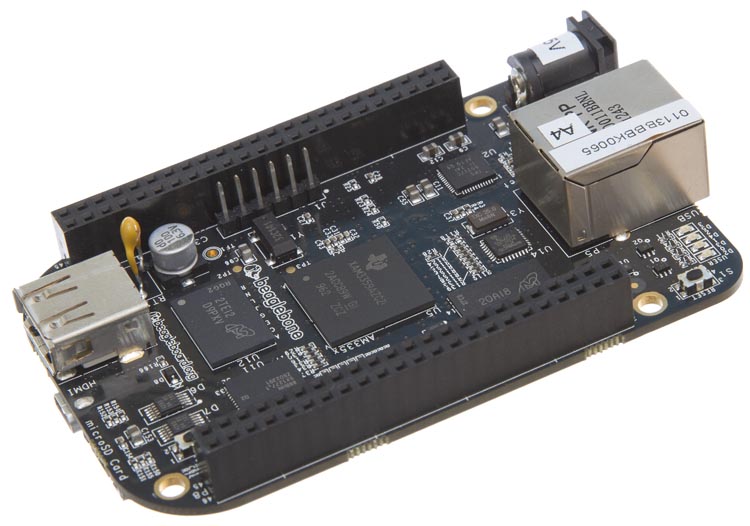A global survey by Farnell shows significant use of low-cost SBCs are being used in all stages of product development and production led by the Raspberry Pi
Single board computers are increasingly being used in industrial designs and across the Internet of Things. This has led to shortages in popular boards such as the Raspberry Pi, with Arduino and BeagleBoard also popular, but with calls for more support for machine learning.
 |
||
| Raspberry Pi Pico. | ||
A report by distributor shows half of professional engineers surveyed use SBCs for industrial and Internet of Things (IoT), which are the most popular SBC applications. The Raspberry Pi is the most popular board with 44 per cent of professional users preferring it to other SBCs. Arduino was ranked second (28 per cent) with the Beagleboard (driven by Texas Instruments) in third place at 6 per cent. This puts another of Farnell's SBC's Intel's Joule board, based on the discontinued Spark processor, down in the noise.
 |
||
| Arduino Uno Rev3. | ||
 |
||
| Beagleboard. | ||
The survey also indicates that users of Raspberry Pi are most loyal and less likely to use another SBC than engineers who preferred a different product. This also makes recycling schemes such as the one recently introduced by manufacturer Sony and another distributor, Okdo, more signficant.
SBCs are being used in all stages of product development and production with 23 per cent of respondents using SBCs for proof of concept and 35 per cent for prototyping as might be expected. While the boards have also been used in low volume production, the survey showed 22 percent use low-cost SBCs in production units, with around 20 per cent of these products produced in volumes of 5K or more per year, and 20 per cent use for developing test equipment and testing.
The global survey ran from March to May 2021 and received nearly 1,500 responses from professional engineers, designers and makers working on SBC solutions. Three quarters of the respondents (75 per cent) were professional users and only a quarter were hobbyists or makers (25 per cent). The questions were designed to understand how popular SBCs from some of the world’s leading manufacturers are being used within professional products and projects.
About 24 per cent of professionals build their own boards for use with the SBC, demonstrating the benefits of a standard compute platform with custom IO/interface electronics in many applications.
However only 20 per cent of engineers are currently using Artificial Intelligence (AI) and machine learning in their SBC applications, which may be down to the limited performance of the boards. High performance AI and more memory were the most common requests for improvements to SBCs.
Touchscreens are by far the most popular accessory, however cameras and kits for enhancing power supply via battery or solar panels are also in demand.
Professional users are much more likely to have customised boards than makers.
“This new research clearly illustrates the widespread adoption of SBCs among engineers working in commercial, IoT and industrial environments. The success of the Raspberry Pi and Arduino is driven by a powerful combination of high performance, versatility, features and accessories, low cost and a large active user community, making these platforms very attractive to engineers looking to develop and deploy a broad range of applications quickly. The use of SBCs in prototyping provides opportunities for engineers to significantly reduce computing costs and get new products to market much faster,” said Romain Soreau, Head of Single Board Computing at Farnell.
Farnell has sold more than 15 million units to date and stocks the complete range of Raspberry Pi single board computers including the recently launched Raspberry Pi Pico along with accessories including cases, power supplies, micro-HDMI cables and the Raspberry Pi High Resolution Camera.
